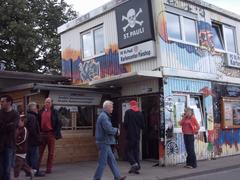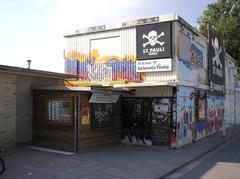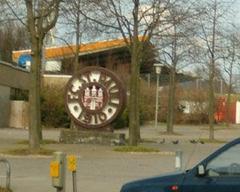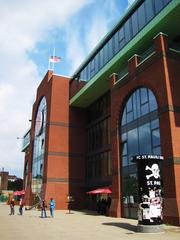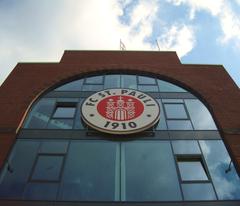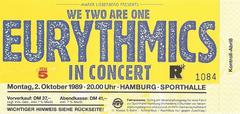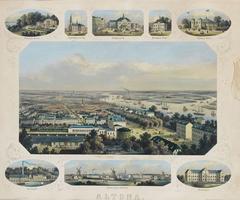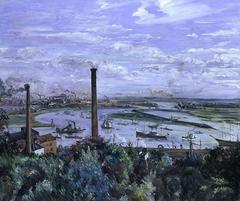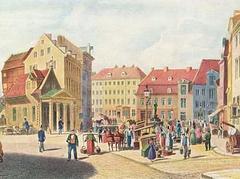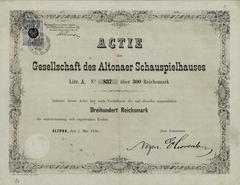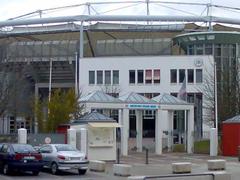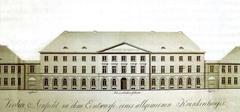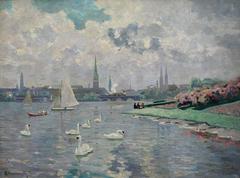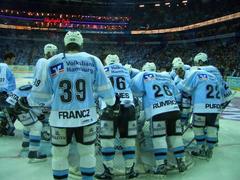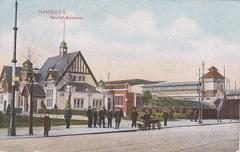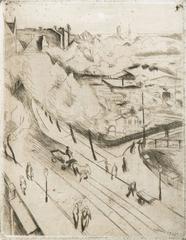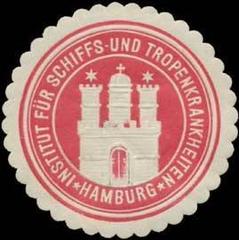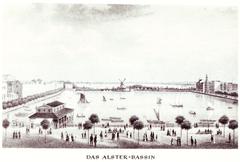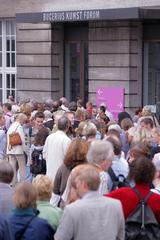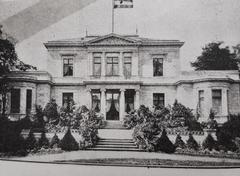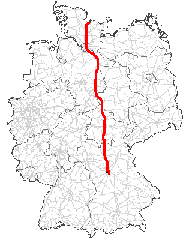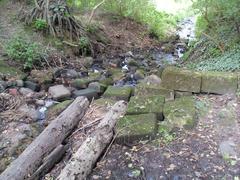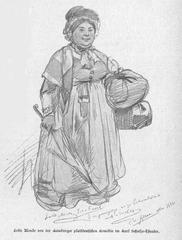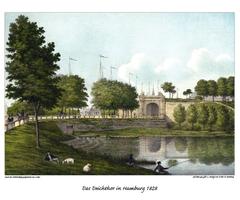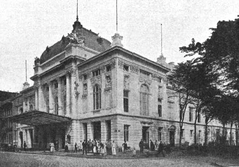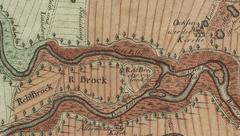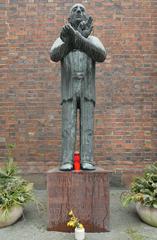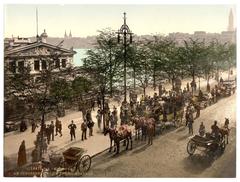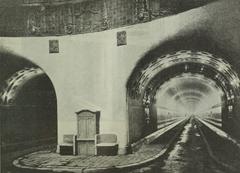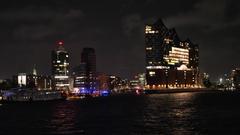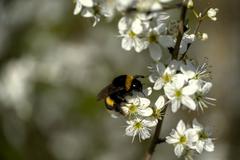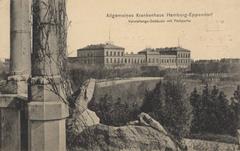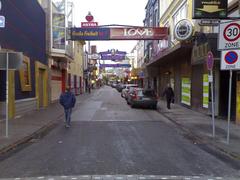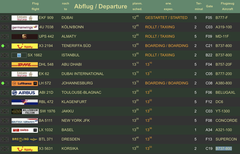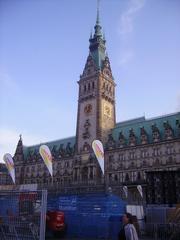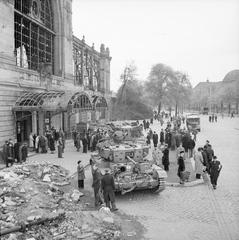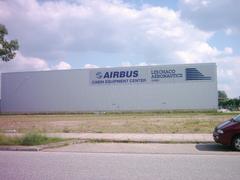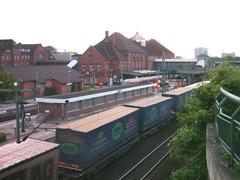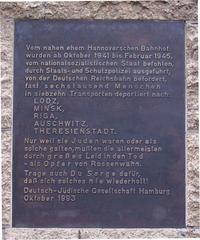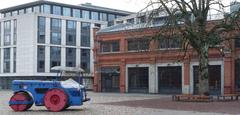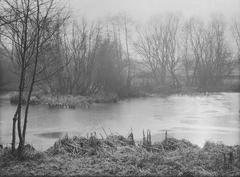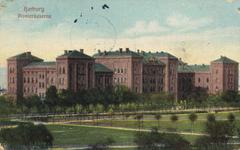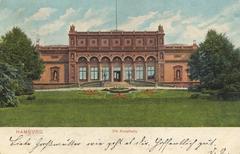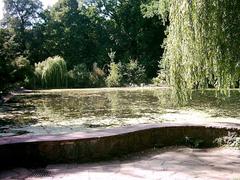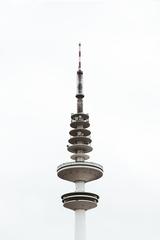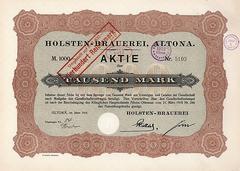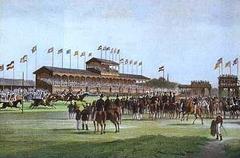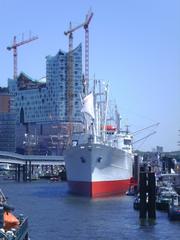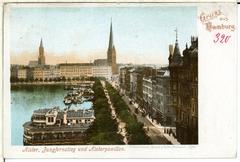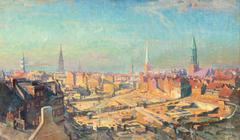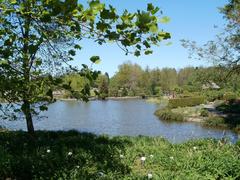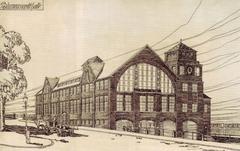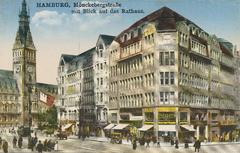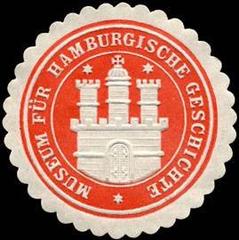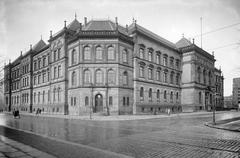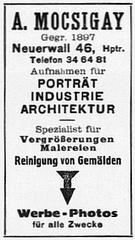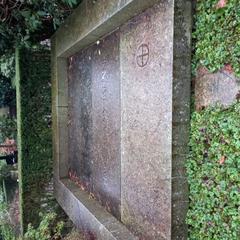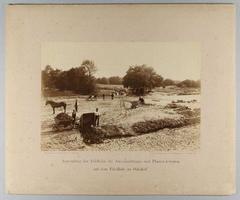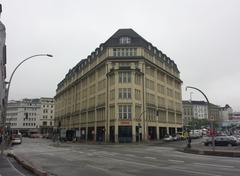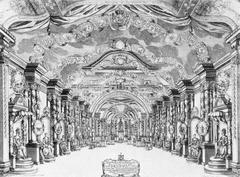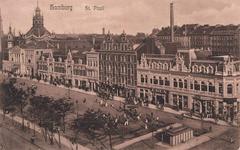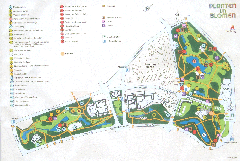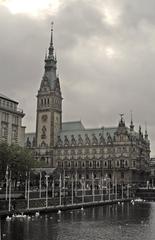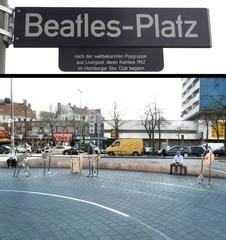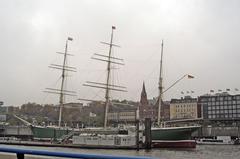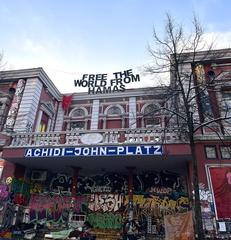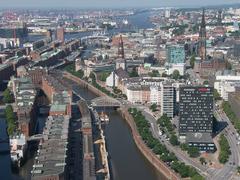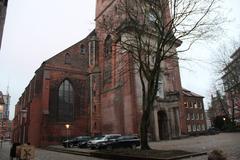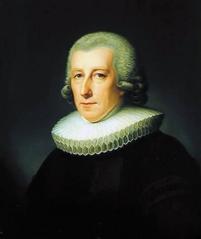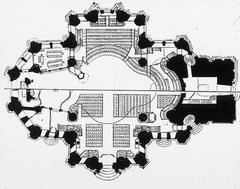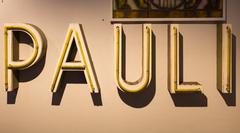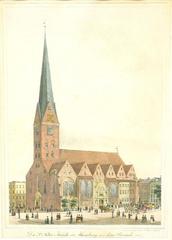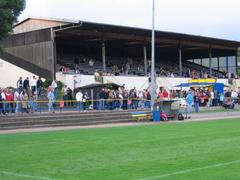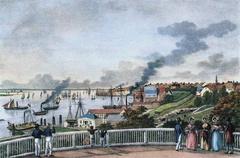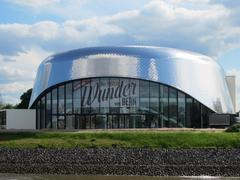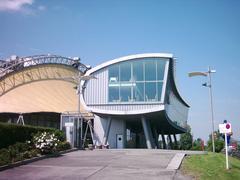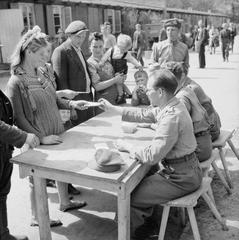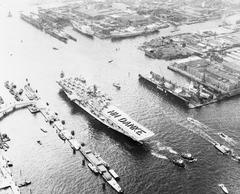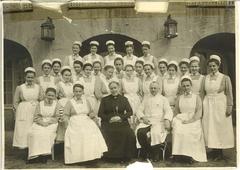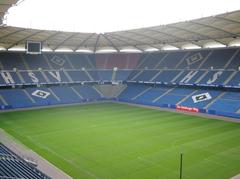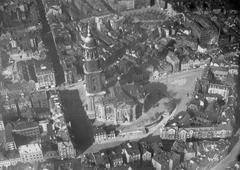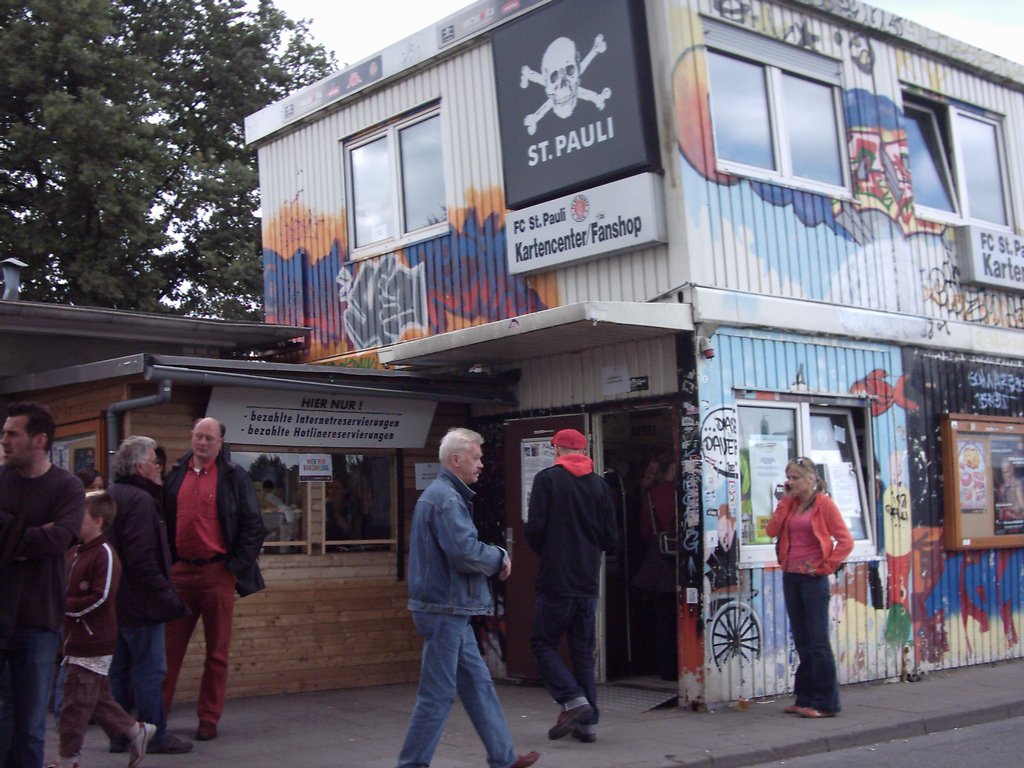
Millerntor-Stadion Visiting Hours Tickets and Hamburg Historical Sites Guide
Date: 14/06/2025
Introduction to Millerntor-Stadion and what visitors can expect
Nestled in the vibrant heart of Hamburg’s culturally rich St. Pauli district, Millerntor-Stadion stands as far more than a traditional football stadium; it is a dynamic symbol of community resilience, progressive values, and urban cultural expression. Serving as the home ground for FC St. Pauli, a club renowned for its passionate fan base and commitment to social activism, Millerntor-Stadion offers visitors a unique blend of sporting excitement and a living testament to Hamburg’s diverse and inclusive spirit. From its origins post-World War I, through periods of reconstruction and modernization, to its current status as a hub for football, music, art, and activism, the stadium reflects a deep historical narrative intertwined with contemporary cultural significance (Hamburg Tourist; footballtripper.com).
Visitors to Millerntor-Stadion can immerse themselves in an intimate matchday atmosphere, characterized by the fervent support of the “Kiezkicker” and the iconic Südkurve, where chants, tifos, and traditions create an electrifying ambiance unlike any other in German football (FC St. Pauli). Beyond football, the stadium hosts a variety of cultural events including concerts and the celebrated Millerntor Gallery street art festival, reinforcing its role as a vibrant community venue (Flyctory).
This comprehensive guide covers all essential information for planning your visit, including up-to-date visiting hours, ticket purchasing options, accessibility features, and nearby attractions such as the lively Reeperbahn nightlife district and historical sites like the Speicherstadt warehouse quarter (Hamburg Travel; ADAC Hamburg Sehenswürdigkeiten). Whether you are a football enthusiast, history buff, or cultural explorer, this resource will equip you with practical tips and insider knowledge to experience Millerntor-Stadion to its fullest.
Contents including visiting hours tickets history cultural significance travel tips and nearby attractions
- Introduction
- Historical Overview and Cultural Significance
- Early Development and Historical Milestones
- Architectural Features and Modernization
- Cultural Significance and Social Identity
- Fan Culture and Matchday Rituals
- Visiting Millerntor-Stadion: Hours, Tickets, and Access
- Visiting Hours
- Tickets
- How to Get There
- Accessibility
- Nearby Attractions
- Unique Visitor Experiences
- Guided Tours and Special Events
- Photographic Spots
- Visual and Interactive Media
- Events at Millerntor-Stadion
- Football Matches and Sporting Events
- Concerts and Cultural Events
- Annual and Special Events
- Stadium Architecture, Facilities, and Accessibility
- Historical Evolution and Design Philosophy
- Stadium Layout and Capacity
- Architectural Features and Aesthetics
- Facilities
- Seating and Standing Areas
- Hospitality and VIP Services
- Club Shop and Merchandise
- Food and Beverage
- Restrooms and Family Facilities
- Stadium Tours and Visiting Hours
- Accessibility
- Location and Transport Links
- Access for Visitors with Disabilities
- Ticketing and Entry
- Security and Stadium Policies
- Nearby Attractions and Travel Tips
- FAQ
- Conclusion
- Call to Action
Introduction
Located in the heart of Hamburg’s vibrant St. Pauli district, Millerntor-Stadion is not just a football stadium but a cultural landmark reflecting the city’s rich history and progressive spirit. Whether you’re a football fan, history enthusiast, or traveler exploring Hamburg historical sites, this guide offers everything you need to know about visiting Millerntor-Stadion, including visiting hours, ticket information, accessibility, and nearby attractions.
Historical Overview and Cultural Significance
Early Development and Historical Milestones
Millerntor-Stadion, situated at Harald-Stender-Platz 1, is a symbol of Hamburg’s sporting tradition and community resilience. Its roots trace back to post-World War I when local clubs and workers’ sports teams played on ash pitches at Heiligengeistfeld, the stadium’s current location (Hamburg Tourist).
Post-World War II, FC St. Pauli’s supporters built a provisional stadium from war debris, which was later replaced by the current Millerntor-Stadion after delays, including a missing drainage system that postponed its official opening to 1963 (Hamburg Ausflug). The stadium’s name evolved over time, originally named after the historic Millerntor city gate, briefly renamed Wilhelm-Koch-Stadion (1970-1998), before reverting (Wikipedia).
Architectural Features and Modernization
Known for its intimate atmosphere, Millerntor-Stadion’s steep stands, including the iconic Südkurve, bring fans close to the action, preserving a unique matchday experience (Wikipedia). Recent renovations (2006-2015) introduced 39 private boxes, nearly 2,500 business seats, wheelchair accessibility, and even a kindergarten, emphasizing community integration (Hamburg Ausflug).
Cultural Significance and Social Identity
The stadium embodies Hamburg’s openness and progressive values, situated in the multicultural and countercultural St. Pauli district. FC St. Pauli and its fans champion anti-racism, LGBTQ+ rights, and community activism, making Millerntor-Stadion a pioneer in banning fascist chants and far-right symbolism (FC St. Pauli). Murals, banners, and events like “Viva con Agua” enhance its role as a hub for social dialogue and cultural expression (Hamburg Tourism).
Fan Culture and Matchday Rituals
Matchdays at Millerntor-Stadion are electric, with fans known as “Kiezkicker” igniting the atmosphere. Traditions such as playing AC/DC’s “Hells Bells” before games and Blur’s “Song 2” for goals energize supporters (FC St. Pauli; Wikipedia). The Südkurve leads coordinated chants and tifo displays, creating a distinct football and activism environment (Soccity).
Visiting Millerntor-Stadion: Hours, Tickets, and Access
Visiting Hours
Millerntor-Stadion is open for guided tours Tuesday through Sunday, typically from 10:00 AM to 6:00 PM. Hours may vary on matchdays or during special events, so it’s recommended to check the official FC St. Pauli website or local tourist information for the latest details.
Tickets
Tickets for matches can be purchased online via the official FC St. Pauli website, at the stadium box office, or authorized vendors. Prices vary depending on the match and seating category, ranging approximately from €15 for standing areas to €45 for premium seats. Guided tour tickets cost around €10 for adults, with discounts available for children and groups.
How to Get There
Millerntor-Stadion is easily accessible by public transport. The closest U-Bahn station is St. Pauli (U3 line), a short walk from the stadium. Multiple bus lines also serve the area. For drivers, parking is limited, so using public transit is encouraged.
Accessibility
The stadium is committed to accessibility, featuring 96 wheelchair spaces, elevators, and accessible restrooms. Visitors with disabilities are advised to contact the stadium in advance for tailored support.
Nearby Attractions
Visitors can explore nearby Hamburg historical sites such as the Feldstraße bunker, now a green-roofed hotel and cultural venue, and the lively Reeperbahn entertainment district. The scenic Planten un Blomen park and Hamburg city hall are also within walking distance.
Unique Visitor Experiences
Guided Tours and Special Events
Guided tours offer a behind-the-scenes look at the stadium, including the players’ tunnel, locker rooms, and VIP areas. The stadium also hosts concerts, art exhibitions, and community events, making it a vibrant cultural venue beyond football.
Photographic Spots
Popular photo opportunities include the Südkurve with its colorful fan displays, the stadium’s mural-covered walls, and panoramic views from the upper tiers.
Visual and Interactive Media
Visitors can enhance their experience with virtual tours available on the FC St. Pauli website and interactive maps highlighting historical and cultural points within the stadium.
Frequently Asked Questions (FAQ)
Q: What are Millerntor-Stadion’s visiting hours? A: Typically Tuesday to Sunday, 10:00 AM to 6:00 PM, but hours can vary on matchdays. Check the official site before visiting.
Q: How can I buy Millerntor-Stadion tickets? A: Tickets can be purchased online, at the stadium box office, or authorized sellers. Early booking is recommended for popular matches.
Q: Is Millerntor-Stadion accessible for visitors with disabilities? A: Yes, the stadium offers wheelchair spaces, elevators, and accessible facilities. Contact the stadium for personalized assistance.
Q: Are there guided tours available? A: Yes, guided tours are offered regularly and provide a comprehensive stadium experience.
Q: What are some nearby attractions? A: The Reeperbahn district, Feldstraße bunker, Planten un Blomen park, and Hamburg city hall are all close by.
Conclusion
Millerntor-Stadion is a must-visit Hamburg historical site that combines football passion with cultural activism and community spirit. Whether attending a match, joining a guided tour, or exploring the neighborhood, visitors experience a unique blend of tradition, inclusivity, and vibrant urban life.
Call to Action
Plan your visit today to Millerntor-Stadion and immerse yourself in Hamburg’s dynamic culture. For the latest updates, tickets, and virtual experiences, download the Audiala app, explore our related posts on Hamburg’s top attractions, and follow us on social media to stay connected with the city’s heartbeat.
Introduction
Millerntor-Stadion, home to the iconic FC St. Pauli, is more than just a football stadium—it’s a vibrant symbol of Hamburg’s culture, history, and progressive spirit. Whether you’re a football fan, an architecture enthusiast, or a visitor exploring Hamburg’s historical sites, this guide will provide you with everything you need to know about visiting Millerntor-Stadion. From visiting hours and ticketing details to the stadium’s unique architecture and accessibility features, you’ll find practical information and insider tips to make your visit memorable.
Stadium Architecture, Facilities, and Accessibility
Historical Evolution and Design Philosophy
Millerntor-Stadion’s architecture reflects its turbulent history and the progressive values of FC St. Pauli. Established in the early 1960s, the club relocated the stadium roughly 500 meters northwest to accommodate the 1963 International Garden Exposition (footballtripper.com). Initially designed for 32,000 spectators, safety regulations later reduced its capacity to 20,629.
Between 2006 and 2014, the stadium underwent an extensive phased redevelopment, rebuilding each stand in turn: South Stand (2008), Main Stand (2010), Gegengerade/East Stand (2013), and North Stand (2014) (footballtripper.com). This approach preserved its central location in the St. Pauli district, a choice strongly supported by fans who opposed relocating to a more commercialized site in the 1980s (footballtripper.com).
The stadium now showcases a blend of old and new architectural elements, reflecting the club’s commitment to honoring tradition while embracing modern progress (hamburg-tourism.de).
Stadium Layout and Capacity
Millerntor-Stadion features four distinct stands, each with its own atmosphere and purpose:
- South Stand (Südkurve): Known for its passionate supporters, vibrant displays, and banners promoting social justice and inclusivity (establo.hk).
- Main Stand (Haupttribüne/West): Contains club offices, VIP areas, press facilities, and player amenities.
- Gegengerade (East Stand): Home to the Fanladen St. Pauli, the hub for the club’s global fan community (footballfoyer.com).
- North Stand (Nordtribüne): Offers seating and standing sections, often favored by families and visiting fans.
The official football match capacity is 29,063 as of 2025 (footballtripper.com), with some sources citing up to 29,546 depending on event configurations (hamburg-tourism.de).
Architectural Features and Aesthetics
Situated within the lively St. Pauli district, Millerntor-Stadion integrates seamlessly with its urban surroundings, including the Heiligengeistfeld fairground and the famous Reeperbahn (hamburg-tourism.de). Its exterior is characterized by exposed steelwork and large glass facades, highlighting the contrast between the renovated and original structures.
Inside, steep stands bring fans close to the pitch, enhancing acoustics and creating an intimate atmosphere. The Südkurve is especially renowned for its creative fan choreography, anti-discrimination banners, and the club’s skull-and-crossbones emblem, symbolizing FC St. Pauli’s rebellious identity (footballfoyer.com).
Wide concourses and clear sightlines emphasize openness, with no running tracks or barriers to distance spectators from the action.
Facilities
Seating and Standing Areas
Reflecting German football tradition and modern safety standards, Millerntor-Stadion offers a mix of seating and standing terraces. The Südkurve and parts of the Gegengerade are dedicated standing areas known for their energetic atmospheres. Seated options in the Main and North Stands cater to families, VIPs, and visitors seeking comfort (footballtripper.com).
Hospitality and VIP Services
Located in the Main Stand, hospitality suites and VIP lounges provide premium seating, catering, and exclusive pitch views. The Ballsaal (Ballroom) serves as a multifunctional space for events, conferences, and club functions (hamburg-tourism.de).
Club Shop and Merchandise
The club shop within the stadium offers a wide variety of FC St. Pauli merchandise, including apparel featuring the iconic skull-and-crossbones logo, scarves, and memorabilia (footballtripper.com). On matchdays, fan-run stalls and pop-up shops add to the vibrant merchandise scene.
Food and Beverage
Food options reflect local culture and the club’s alternative ethos, featuring currywurst stands, vegan selections, and craft beer from independent vendors and activist groups like Greenpeace (footballfoyer.com). The nearby Jolly Roger pub is a popular gathering spot for supporters before and after games.
Restrooms and Family Facilities
Modern restrooms, including accessible facilities, are available throughout the stadium. The North Stand hosts family-friendly zones with dedicated entrances and child-friendly amenities.
Stadium Tours and Visiting Hours
Guided Millerntor-Stadion tours are offered most days except during home matches and away games. Tours last between 60 and 120 minutes and include behind-the-scenes access to changing rooms, the press area, and the Ballsaal (hamburg-tourism.de).
Visiting Hours: Tours typically run from 10:00 AM to 5:00 PM, but hours can vary seasonally. It’s recommended to check the official FC St. Pauli website or contact the Fanladen St. Pauli for the latest visiting hours.
Ticket Prices: Adult tickets range from €12.50 to €16.50, with discounts for children, students, and groups. Tickets can be purchased online, at the Fanladen, or on-site during non-matchdays.
Accessibility
Location and Transport Links
Millerntor-Stadion’s central position in St. Pauli makes it easily reachable via public transportation. Nearby U-Bahn stations include St. Pauli and Feldstraße, a short walk from the stadium (footballtripper.com). Multiple bus lines serve the area, which is also within walking distance of Hamburg’s harbor and city center.
Access for Visitors with Disabilities
The stadium offers step-free access, elevators, and designated wheelchair seating with companion spots. Accessible restrooms are available in all stands. Trained staff provide assistance to visitors with special needs, underlining the club’s commitment to inclusivity (hamburg-tourism.de).
Ticketing and Entry
Tickets can be bought online, at the Fanladen near the Gegengerade, or at the stadium on non-matchdays. The Fanladen serves as a resource center for ticketing, travel advice, and matchday information, especially helpful for international visitors (footballfoyer.com).
Security and Stadium Policies
Millerntor-Stadion promotes a welcoming, inclusive environment. Security checks are respectful yet thorough. The club enforces a strict anti-discrimination policy, clearly displayed at entrances with messages such as “No racism, no sexism, no homophobia, no antisemitism; no discussion” (footballfoyer.com). Visitors should be aware that bags may be inspected and prohibited items are listed on the official website.
Nearby Attractions and Travel Tips
Visitors can explore the vibrant St. Pauli district, famous for its nightlife, street art, and cultural venues. The Reeperbahn and Hamburg’s harbor are within easy walking distance, offering additional sightseeing opportunities.
Traveling by public transport is advised due to limited parking and street closures during matchdays. Arriving early is recommended to enjoy the bustling pre-match atmosphere with street food, music, and fan activities.
FAQ
Q: What are the Millerntor-Stadion visiting hours? A: Tours usually run from 10:00 AM to 5:00 PM on non-matchdays, but hours vary. Check the official website or Fanladen for current times.
Q: How can I buy Millerntor-Stadion tickets? A: Tickets are available online, at the Fanladen St. Pauli, or at the stadium on non-matchdays.
Q: Is Millerntor-Stadion accessible for visitors with disabilities? A: Yes, the stadium offers step-free access, elevators, accessible seating, and restrooms.
Q: Are there family-friendly areas in the stadium? A: Yes, the North Stand has dedicated family zones with child-friendly facilities.
Q: Can I bring bags into the stadium? A: Bags are subject to inspection. Refer to the club’s website for a list of prohibited items.
Conclusion
Millerntor-Stadion is a captivating destination that offers visitors a unique blend of football passion, architectural interest, and cultural experience in the heart of Hamburg. With its rich history, welcoming atmosphere, and comprehensive facilities, it stands as a true reflection of FC St. Pauli’s values and the vibrant community it serves. Whether attending a match, taking a guided tour, or exploring the surrounding St. Pauli district, your visit to Millerntor-Stadion promises to be memorable.
For the latest updates on visiting hours, ticket availability, and special events, be sure to check the official FC St. Pauli website and consider downloading the Audiala app for personalized travel and event planning. Don’t forget to explore our related posts on Hamburg’s top historical sites and football culture to enhance your trip!
Note: Incorporate high-quality images of Millerntor-Stadion, including the Südkurve atmosphere, architectural details, and the stadium exterior, with alt tags like “Millerntor-Stadion visiting hours” and “FC St. Pauli stadium tours.” Embedding an interactive map of the stadium’s location and links to virtual tours is recommended to enrich the user experience.
Introduction
Millerntor-Stadion, home to the legendary FC St. Pauli, is more than just a football ground—it’s a cultural landmark in Hamburg known for its vibrant fan culture, rich history, and dynamic events. This guide covers everything you need to know about visiting Millerntor-Stadion, including visiting hours, ticket purchasing, tours, accessibility, and insights into the stadium’s unique atmosphere and the FC St. Pauli Museum. Whether you are a football fan, a cultural enthusiast, or a traveler exploring Hamburg historical sites, this guide will help you make the most of your visit.
Events at Millerntor-Stadion
Football Matches and Sporting Events
Millerntor-Stadion is renowned as the home stadium of FC St. Pauli, one of Germany’s most iconic football clubs. It hosts all home matches, attracting up to 29,546 spectators (SeatPick). The match-day atmosphere is famously intense and inclusive, characterized by a unique left-wing, anti-establishment spirit. Away fans are usually seated in the North Stand, contributing to a lively rivalry (SeatPick).
Beyond football, the stadium occasionally hosts American football games (notably for the Hamburg Blue Devils), charity matches, and youth tournaments (Wikipedia).
Concerts and Cultural Events
Millerntor-Stadion serves as a significant cultural venue in Hamburg. It has hosted major concerts, including a legendary Prince performance in 1988 (Wikipedia). Its central location near the Reeperbahn and Heiligengeistfeld makes it ideal for open-air concerts, festivals, and community events.
The stadium also showcases vibrant street art, refreshed annually during the street art festival, reflecting the creative and rebellious St. Pauli spirit (Flyctory).
Annual and Special Events
Millerntor-Stadion is a hub for local celebrations, including FC St. Pauli’s centenary festival in 2010 (Wikipedia). It also participates in city-wide events like the Reeperbahn Festival, one of Europe’s largest club festivals, which often extends into the stadium area (Hamburg Magazin).
Upcoming 2025 highlights include the FC St. Pauli vs. FC Union Berlin match on August 22, alongside various concerts and festivals. Tickets can be purchased via platforms such as SeatPick and Perto.
Visiting Millerntor-Stadion: Hours, Tickets, and Access
Visiting Hours
Millerntor-Stadion is generally open to visitors during guided tours and on match days. Stadium tours operate mainly Monday to Saturday at 14:30, with additional weekend slots and special tours (see “Guided Stadium Tours” section). The FC St. Pauli Museum (KIEZBEBEN) aligns its opening hours with these tours. For match days, gates typically open two hours before kickoff.
Tickets for Matches and Tours
- Match Tickets: High demand, especially for derby and high-profile matches. Tickets should be purchased in advance through official club channels or trusted resellers like SeatPick.
- Stadium Tours: Tickets are available online via the official FC St. Pauli website, with prices ranging from €13.50 to €28.50 depending on tour type.
- Museum Admission: Included with tour tickets or available separately.
Accessibility
Millerntor-Stadion is centrally located at Harald-Stender-Platz 1, 20359 Hamburg, near Heiligengeistfeld and within walking distance of the Reeperbahn and Planten un Blomen park (Stadium Guide). The nearest U-Bahn station is St. Pauli (U3 line), just minutes away.
Facilities include:
- Accessible seating with 16 spots for visually impaired visitors and companions in the Gegengerade (East Stand)
- Wheelchair-accessible routes and restrooms
- On-site fan shop with FC St. Pauli merchandise (Flyctory)
Travel Tips Beyond Match Days
- Best Times to Visit: Consider weekdays for tours to avoid crowds. Visit during the annual street art festival for a unique experience.
- Nearby Accommodations: Plenty of hotels and hostels are available near the Reeperbahn district.
- Transport: The stadium is well-connected by public transport; parking around the area is limited.
Visitor Experience
Stadium Atmosphere and Culture
Millerntor-Stadion embodies the alternative, countercultural identity of St. Pauli. Expect to see skull-and-crossbones flags, political banners, and vibrant graffiti (Sportsrender). The fan culture strongly supports anti-racism, anti-fascism, and social justice.
The Gegengerade (East Stand) features standing terraces for over 10,000 fans, fostering a dynamic communal atmosphere (Wikipedia). Uniquely, the stadium houses the “Piraten-Nest” kindergarten, the only childcare facility in a professional German football stadium (Flyctory).
Guided Stadium Tours
The popular “Millerntour” offers behind-the-scenes access, led by passionate local guides and lifelong club supporters (FC St. Pauli). Tours are available in German and English.
Tour Options
- Standard Tour (120 minutes): Covers stands, players’ dressing rooms, press areas, and the ballroom. Offered Monday to Saturday at 14:30.
- Compact Tour (60 minutes): Highlights of the stadium, available twice weekly.
- After Work Tour (90 minutes): Includes drinks; Thursdays at 19:00.
- Children’s Tours: Interactive and tailored for young visitors.
Prices (June 2025):
- 120-minute: €17.50 (reduced €13.50)
- 60-minute: €13.50 (reduced €9.50)
- After Work: €28.50 (reduced €24.00)
All tours start at the FC St. Pauli Museum in the Gegengerade and include a €5 fan shop voucher. Tours are unavailable on home or away match days.
FC St. Pauli Museum (KIEZBEBEN)
Located inside the Gegengerade, the museum offers a fan-driven, immersive look at the club’s history, social activism, and cultural impact (FC St. Pauli).
Highlights include:
- Club origins and evolution alongside St. Pauli
- The iconic skull-and-crossbones and anti-fascist fan culture
- Historic milestones and community projects
The museum is wheelchair accessible and offers multilingual materials. Admission is included with tours, and standalone tickets are available.
Combined Experience
The “MILLERNTOUR! Museum + Stadion” package is a comprehensive 120-minute tour including museum access and a €5 shop voucher, available Sundays at 11:00 (FC St. Pauli).
Frequently Asked Questions (FAQ)
Q: What are Millerntor-Stadion’s visiting hours? A: The stadium is open during guided tours Monday to Saturday (mainly 14:30), with special tours and match days opening two hours before kickoff. Check the official website for current schedules.
Q: How can I buy Millerntor-Stadion tickets? A: Match tickets can be purchased via FC St. Pauli’s official site or trusted resellers like SeatPick. Tour tickets are available online on the club’s website.
Q: Is Millerntor-Stadion accessible for disabled visitors? A: Yes, the stadium offers accessible seating, wheelchair access, and facilities for visually impaired guests.
Q: Are guided tours available in English? A: Yes, Millerntor-Stadion offers guided tours in both German and English.
Conclusion
Millerntor-Stadion is a must-visit Hamburg historical site that offers a captivating blend of sport, culture, and social activism. Whether attending a match, exploring the museum, or joining a guided tour, visitors experience the heart and soul of FC St. Pauli and its community.
For the latest visiting hours, ticket information, and event updates, visit the official FC St. Pauli website and trusted ticket platforms like SeatPick.
Enhance your visit by exploring nearby attractions such as the Reeperbahn and Planten un Blomen park.
Call to Action
Plan your visit today! Download the Audiala app for exclusive updates on Millerntor-Stadion events and tickets. Don’t forget to explore our related articles on Hamburg historical sites and follow us on social media for the latest news and insider tips.
Welcome to Millerntor-Stadion: Hamburg’s Iconic Football and Cultural Hub
Nestled in Hamburg’s vibrant St. Pauli district, Millerntor-Stadion is much more than a football stadium—it’s a symbol of community spirit, social commitment, and cultural celebration. Whether you’re a football fan, an art lover, or a curious traveler, this guide covers everything you need to know about Millerntor-Stadion visiting hours, tickets, and the rich local attractions nearby.
Getting to Millerntor-Stadion
Millerntor-Stadion is centrally located in Hamburg’s lively St. Pauli district, easily reachable by public and private transport. The stadium’s address is Harald-Stender-Platz 1, 20359 Hamburg.
By Public Transport
- U-Bahn (Metro): The nearest metro station is Messehallen (U2 line), just a short walk from the stadium. St. Pauli (U3 line) is also nearby, offering convenient access from various parts of the city (UITP Summit Practical Information).
- S-Bahn (Suburban Rail): Sternschanze (S21, S31) and Reeperbahn (S1, S3) stations are within walking distance.
- Bus: Multiple bus lines serve stops at Feldstraße and Reeperbahn.
- From Hamburg Airport: Take the S1 commuter rail to Hamburg Hauptbahnhof (Central Station), then transfer to the U3 or U2 metro lines (UITP Summit Practical Information). The trip takes around 30 minutes.
By Car or Taxi
Parking in St. Pauli can be limited, especially on match days or during major events. Public transport is recommended. Taxis and ridesharing services such as MOIA offer convenient rides, typically 20–30 minutes from the airport or central station depending on traffic (UITP Summit Practical Information).
Millerntor-Stadion Visiting Hours
- Matchdays: Gates usually open 90 minutes before kickoff. Exact times vary per event.
- Guided Stadium Tours: Available on non-match days, generally between 10:00 AM and 4:00 PM. Booking in advance is recommended via the official FC St. Pauli website.
- Events and Festivals: Opening hours depend on the event schedule; for example, the Millerntor Gallery festival runs daily from approximately 12:00 PM to 10:00 PM during its July dates.
Ticketing and Entry
Match Tickets
FC St. Pauli matches are highly popular, with attendance often reaching full capacity. Advance booking is essential, especially for Bundesliga fixtures. Ticket prices generally range from €15 to €40 depending on seating and match importance (St. Pauli Football Club Visitor Guide). Purchase tickets through the official FC St. Pauli website or at the club’s fan shop near the stadium. Popular matches may sell out weeks ahead.
Event Tickets
Cultural events like the Millerntor Gallery festival offer tickets online, with the 2025 edition scheduled for July 10–13 (Millerntor Gallery). Prices vary by event.
Accessibility
Millerntor-Stadion provides barrier-free access for wheelchair users and visitors with reduced mobility. Detailed information is available on Hamburg’s official tourism page (Barrier-Free Travel).
Stadium Facilities and Visitor Experience
Stadium Layout and Amenities
- Capacity: Approximately 29,546 spectators.
- Seating: Both seated and standing areas, including the famed “Südtribüne” (South Stand) known for passionate supporters.
- Food and Drink: Numerous kiosks offer local and international snacks, including vegan and vegetarian options. Beer is widely available, contributing to the stadium’s lively, inclusive atmosphere (St. Pauli Football Club Visitor Guide).
- Merchandise: The official FC St. Pauli fan shop adjacent to the stadium sells jerseys, scarves, and iconic skull-and-crossbones merchandise.
Matchday Atmosphere
Millerntor-Stadion is renowned for its unique, inclusive, and celebratory spirit. After each St. Pauli goal, fans erupt with a collective “woo hoo!” to Blur’s “Song 2.” The club’s anti-establishment ethos and social commitment are visible in banners, chants, and community projects (St. Pauli Football Club Visitor Guide).
Non-Matchday Visits
Guided tours offer insights into the club’s history, values, and behind-the-scenes areas. Book via the club’s website or fan shop.
Major Events at Millerntor-Stadion
Millerntor Gallery
Every summer, the stadium transforms into Hamburg’s largest temporary art gallery during the Millerntor Gallery festival. Featuring street art, illustration, design, photography, and a diverse music and cultural program, the 2025 festival runs July 10–13 and expects around 18,000 visitors (Millerntor Gallery). Proceeds support global water, sanitation, and hygiene projects through Viva con Agua ARTS.
Other Events
The stadium hosts concerts, community gatherings, and solidarity actions, reflecting FC St. Pauli’s deep social and cultural engagement (St. Pauli Football Club Visitor Guide).
Local Attractions Near Millerntor-Stadion
St. Pauli and the Reeperbahn
- Reeperbahn: Just a few hundred meters away, Hamburg’s legendary nightlife district known as the “sinful mile” features bars, clubs, theaters, and Beatles-Platz (ADAC Hamburg Sehenswürdigkeiten).
- Davidwache: Germany’s most famous police station on the Reeperbahn, popular for photos.
St.-Pauli-Landungsbrücken
Historic floating piers on the Elbe River offering boat tours, harbor views, and access to museum ships like Cap San Diego and Rickmer Rickmers (ADAC Hamburg Sehenswürdigkeiten).
Elbphilharmonie
Hamburg’s iconic concert hall at the Speicherstadt district’s edge, with striking architecture and a public Plaza offering panoramic city and harbor views. Entry is free with a same-day ticket or reservable for a small fee (ADAC Hamburg Sehenswürdigkeiten).
Speicherstadt
The UNESCO World Heritage historic warehouse district known for red-brick architecture, canals, Miniatur Wunderland, and the Speicherstadt Museum (ADAC Hamburg Sehenswürdigkeiten).
Planten un Blomen
This large urban park near the stadium features botanical gardens, lakes, playgrounds, and summer water-light concerts—perfect for families and relaxation (ADAC Hamburg Sehenswürdigkeiten).
Karolinenviertel
Next to St. Pauli, this neighborhood offers street art, independent boutiques, and vibrant flea markets, showcasing Hamburg’s creative subculture (ADAC Hamburg Sehenswürdigkeiten).
Practical Tips for Visitors
Accommodation
St. Pauli and surrounding areas offer boutique hotels to budget hostels. Early booking is advised during match days and festivals (UITP Summit Practical Information).
Safety
St. Pauli is generally safe, but visitors should stay alert, especially late at night. Families with older children can enjoy main Reeperbahn areas but should avoid dark side streets (ADAC Hamburg Sehenswürdigkeiten).
Language
German is primary, but English is widely spoken in tourist spots, stadium facilities, and by FC St. Pauli staff.
Dress Code
Casual, comfortable attire suits matches and events. For evening concerts, smart casual is appropriate (UITP Summit Practical Information).
Public Transport Passes
Day or multi-day passes for unlimited travel on Hamburg’s buses, trains, and ferries (HVV network) are available at stations, online, or via the HVV app (UITP Summit Practical Information).
Family-Friendly Activities
Attractions like Miniatur Wunderland, Planten un Blomen, and Tierpark Hagenbeck zoo offer engaging experiences for all ages (ADAC Hamburg Sehenswürdigkeiten).
Seasonal Events
Hamburg hosts festivals year-round, such as altonale arts festival, Hamburg Harley Days, and IRONMAN European Championship. Check the city’s event calendar for planning (Hamburg Events June).
Frequently Asked Questions (FAQ)
Q: What are Millerntor-Stadion visiting hours? A: Matchday gates open about 90 minutes before kickoff. Guided tours typically run 10:00 AM–4:00 PM on non-match days. Event hours vary.
Q: How can I buy Millerntor-Stadion tickets? A: Purchase tickets online via the official FC St. Pauli website or at the fan shop near the stadium. Early booking is recommended.
Q: Is Millerntor-Stadion wheelchair accessible? A: Yes, the stadium offers barrier-free access and facilities for visitors with reduced mobility.
Q: Are there any nearby Hamburg historical sites? A: Yes, including the Speicherstadt warehouse district and St.-Pauli-Landungsbrücken piers.
Q: Can I take a stadium tour? A: Guided tours are available on non-match days and can be booked online.
Visuals and Media
For a virtual glimpse of Millerntor-Stadion’s vibrant atmosphere and layout, visit the official FC St. Pauli website or explore interactive maps and virtual tours available online. Consider viewing photos showcasing the passionate fan culture, stadium facilities, and major events like the Millerntor Gallery.
Internal Resources
Explore our related articles on Hamburg’s Nightlife and Cultural Districts and Top Family Attractions in Hamburg to enrich your visit.
Essential Contacts and Resources
- FC St. Pauli Official Website: https://www.fcstpauli.com
- Hamburg Tourism: https://www.hamburg-travel.com
- Public Transport (HVV): https://www.hvv.de
- Barrier-Free Travel: https://www.hamburg-travel.com/barrier-free-travel/
Stay Connected and Plan Your Visit
Download the mobile app Audiala for up-to-date match schedules, ticket alerts, and exclusive content on Millerntor-Stadion and FC St. Pauli. Follow us on social media for the latest news, behind-the-scenes stories, and community events. Dive into the heart of Hamburg’s culture and sport with Millerntor-Stadion as your gateway!
We hope this guide enhances your experience visiting Millerntor-Stadion and exploring Hamburg’s rich cultural tapestry. Enjoy your trip!
Summary of key points about visiting Millerntor-Stadion and additional resources
Millerntor-Stadion epitomizes the vibrant intersection of sport, culture, and social activism that defines Hamburg’s St. Pauli district. As the storied home of FC St. Pauli, it offers visitors not only thrilling football matches in an intimate and fervent atmosphere but also a profound cultural experience steeped in progressive values and community engagement. From its rich historical roots to its modern architectural evolution, the stadium stands as a beacon of inclusivity, artistic expression, and fan-driven identity (Wikipedia; footballtripper.com).
Visitors can enjoy a variety of experiences, including guided stadium tours that unveil behind-the-scenes glimpses of players’ areas and the club museum, as well as participation in unique events such as the Millerntor Gallery festival and open-air concerts. The stadium’s comprehensive accessibility features ensure that all visitors, including those with disabilities, can engage fully with its offerings. Additionally, the proximity to iconic Hamburg attractions like the Reeperbahn, Planten un Blomen park, and the historic Speicherstadt enriches the visitor experience with diverse cultural and leisure opportunities (Hamburg Tourism; FC St. Pauli).
Planning ahead with knowledge of visiting hours, ticket options, and transportation will maximize your enjoyment of this unique venue. To stay updated on events and secure tickets, visiting the official FC St. Pauli website and trusted platforms is highly recommended. Enhance your trip further by downloading the Audiala app for personalized schedules and exclusive content. Whether you come for the football, the culture, or the community spirit, Millerntor-Stadion promises an unforgettable Hamburg experience that resonates far beyond the pitch.
Links to official Millerntor-Stadion website and related credible sources
- Millerntor-Stadion Visiting Hours, Tickets, and Cultural Significance in Hamburg, 2025, Hamburg Tourist https://hamburgtourist.info/millerntor-stadion.html
- Millerntor-Stadion Guide: Visiting Hours, Tickets, Architecture & Accessibility in Hamburg, 2025, FootballTripper https://footballtripper.com/germany/st-pauli-stadium/
- Millerntor-Stadion Visiting Hours, Tickets, and Cultural Guide to Hamburg’s Iconic FC St. Pauli Ground, 2025, FC St. Pauli Official Site and SeatPick https://seatpick.com/millerntor-stadion-hamburg-tickets
- Millerntor-Stadion Visiting Hours, Tickets, and Nearby Attractions in Hamburg, 2025, Hamburg Travel and ADAC https://www.hamburg-travel.com
- Millerntor-Stadion Wikipedia Entry, 2025 https://en.wikipedia.org/wiki/Millerntor-Stadion
- Millerntor Gallery, 2025, Hamburg Travel https://www.hamburg-travel.com/see-explore/events/millerntor-gallery/
- Flyctory: Millerntor Stadium Tour - Home of FC St. Pauli, 2022 https://flyctory.com/2022/11/15/millerntor-stadium-tour-home-of-the-fc-st-pauli/
- ADAC Hamburg Sehenswürdigkeiten (Hamburg Attractions), 2025 https://www.adac.de/reise-freizeit/reiseplanung/inspirationen/deutschland/hamburg-sehenswuerdigkeiten/
